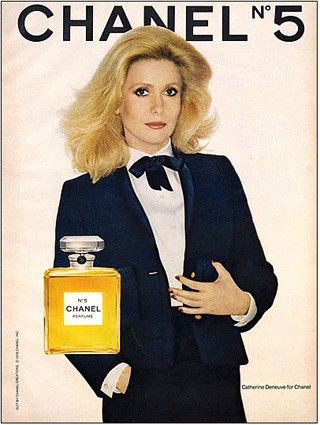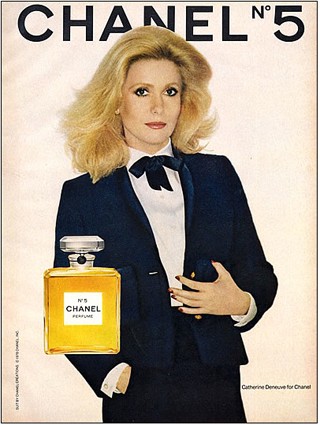“Virtually Infallible Except In Romance And Politics”


Chanel’s tastes were virtually infallible except in romance and politics. She had many passions but few loves, and it amused her to keep younger men, one of whom was Grand Duke Dmitri Pavlovitch, the Tsar’s nephew and an alleged assassin of Rasputin. She also hired his sister, the Grand Duchess Marie, to direct the embroidery workshop that produced her sumptuous Russian tunics and tabards of the twenties. Dmitri repaid her generosity with an introduction to Ernest Beaux, a chemist and perfumer, who in 1920 concocted the formula for Chanel No. 5. Though Chanel conceded the distribution rights to the Wertheimers and litigated with them for the next forty years, the royalties made her one of the richest women in France. She moved into a mansion near the Elysée Palace and spent her fortune with abandon: on a Rolls-Royce; Coromandel screens; cascades of diamonds and pearls that she mixed rakishly with her ropes of “amusing trinkets”; and a villa at Roquebrune, in Provence, where she cohabited with the grandest of her consorts, the Duke of Westminster, and entertained the Churchills. Chanel and the Duke tried very hard to conceive a child — he had no heirs — and when they didn’t (she was by then forty-two) he married someone else. She consoled herself gamely with a defiant boast: “There have been several Duchesses of Westminster, but only one Chanel.”
I’m re-reading a bunch of Judith Thurman essays right now; there have been a lot of essays and books on Gabrielle “Coco” Chanel, but Thurman’s 2005 piece “Scenes From A Marriage” is one of the best, I think. Like: Coco dated one of the guys who maybe murdered Rasputin?!? Hi how has no one ever told me that before!! That’s very important information!!! I mean, I know the answer is because the majority of historical research towards Coco Chanel’s love life focuses on all the, uh, Nazis, and Thurman doesn’t skip quoting one of Chanel’s most famous and most reprehensible statements:
The last of Chanel’s known gentlemen gigolos was Hans Gunther von Dincklage, alias Spatz, the suave German officer who shared her suite at the Ritz during the Occupation. When she was arrested after the Liberation of Paris by the Comité d’Épuration, and questioned about this unfortunate alliance, she supposedly retorted to her interrogator, “Really, monsieur, a woman of my age cannot be expected to look at his passport if she has a chance of a lover.”
Auhsdjkansdjfnaskdfjnaskdf.
There’s something very gratifying about thinking you know everything there is to know about a certain kind of public figure and then finding out a brand new piece of information which somehow both confirms their identity as you already understood it (Coco Chanel: fashion designer, Horny Jail inhabitant) but also expands your perception of said fact (Coco Chanel: fashion designer, Horny Jail inhabitant with preference for really scary men).
More excellent parts from this essay: Thurman’s careful portrayal of the tensions between Karl Lagerfeld and Harold Koda during the summer 2005 Chanel exhibition at the Met’s Costume Institute (Chanel was a “sponsor,” which is exactly as conflicting as it sounds!), the use of the word “novelistic” when describing Chanel’s memoirs, and this sentence, which is perfect:
Whatever Chanel would have made of the Met show, it is just the sort of meal she preferred — a lean banquet, beautifully plated, that leaves you hungry.
Read the whole thing this afternoon, and then read her essay on The Sexual Life of Catherine M., which I really disagreed with and would like to discuss further! I did appreciate the phrase “nailed for love” though.
Anyway, today is a day for reading Judith Thuman, behave accordingly.